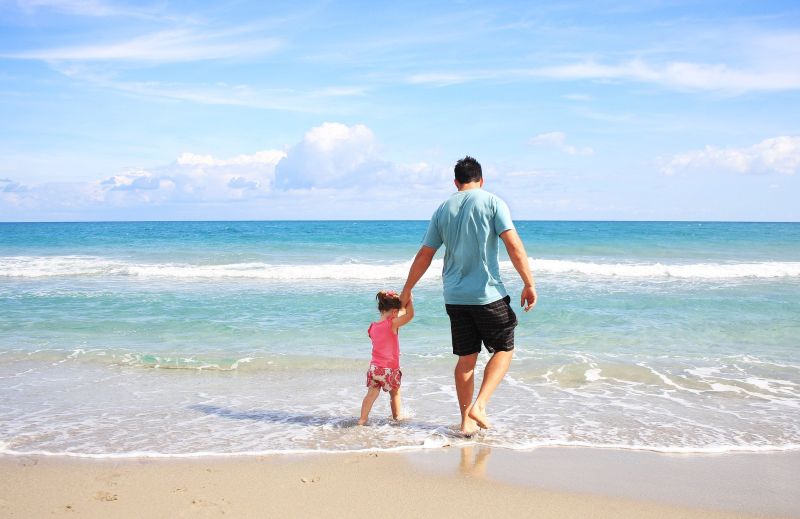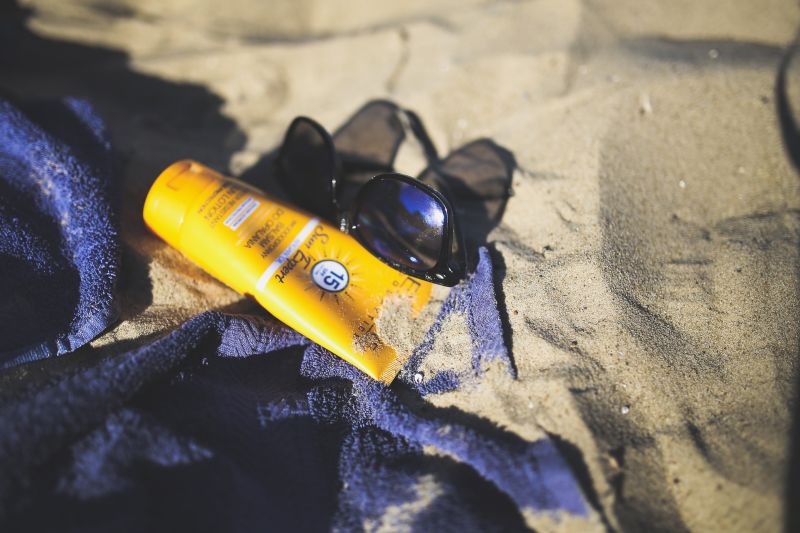The summer is a fun and carefree time for any child. For parents, however, it’s a completely different story. Summer brings many things parents need to look out for and one of them is protecting their children from the sun. The sun’s rays are becoming more and more aggressive every year. Do you know how to protect your child’s skin and what to do in case of a sunburn?
A child’s skin is a lot more delicate than an adult’s, which is why it needs more protection. The skin of an average adult with darker hair can naturally protect itself from the sun for about 40 minutes. A child’s skin can only protect itself for 5 minutes. Many moms don’t know that children younger than 3 shouldn’t spend a lot of time in the sun and they should never be under direct sunlight. That’s why small children should only be taken out in a stroller in the morning or evening hours when the sun isn’t as aggressive.
If your children are older than 3 years, it’s advised to use a sun cream with an SPF (sun protection factor) of at least 30+ and you should reapply it frequently. You should also make sure to avoid taking your child out when the sun’s rays are the most intense, that is between 11 am and 3 pm. The sun is most dangerous when its rays hit the earth vertically, around noon.
Be careful which sun cream or spray you use on your child’s skin. Avoid those with added perfumes and coloring.

The skin remembers
A child’s skin ‘remembers’ that it was burnt and carries it into adulthood. If you don’t take care of your little one’s skin, it can cause them trouble later down the line. You can avoid the negative effects of the sun by using products that are specifically designed to protect from it. These products contain organic compounds and inorganic particles that absorb ultraviolet (UV) light. We choose the SPF of our sun cream based on the type of skin. It needs to be applied at least half an hour before we actually go out into the sun and it’s important that we reapply it every two hours, after bathing, after wiping the body with a towel, and also if we get too sweaty because the sun cream may be washed or rubbed off.
Experts claim that people with light or pale skin, lack of pigmentation, freckles, light or ginger hair, and blue eyes are more susceptible to skin cancer coming from sunburn. Their skin doesn’t become brown in the sun, it becomes red and develops a burn. Adults who were burnt by the sun as children are also susceptible, that’s why the topic of children and the sun is so widely discussed.
Remember that:
- children younger than 3 should never be put under direct sunlight,
- before using a sun cream or other product, you need to test for a possible allergic reaction by applying a bit to your child’s forearm and then waiting for an hour or two for a possible reaction,
- the sun cream should always be applied at least half an hour before you go out in the sun,
- colored clothes also protect the skin from UV light because they absorb it, but they also overheat a child’s skin,
- the sun can burn us even if it’s behind the clouds or if we hide from it under an umbrella or in the water, so don’t forget to protect your children even when they aren’t under direct sunlight,
- the most sensitive areas of a child’s body that can easily burn are the nose, ears, neck and buttocks.

When your child gets burned
- put them into the shade or into a cool room,
- you can use milk products from your fridge and apply curd or yogurt to the burnt skin,
- a cool shower will work a miracle but be careful to not make the water too cold, keep it lukewarm,
- aloe vera juice is great for easing the pain,
- folk recipes recommend using cool black tea or vinegar poultices,
- if your child has an increased temperature, give them medication,
- if your child is experiencing cramps or losses of consciousness, immediately seek out a doctor.